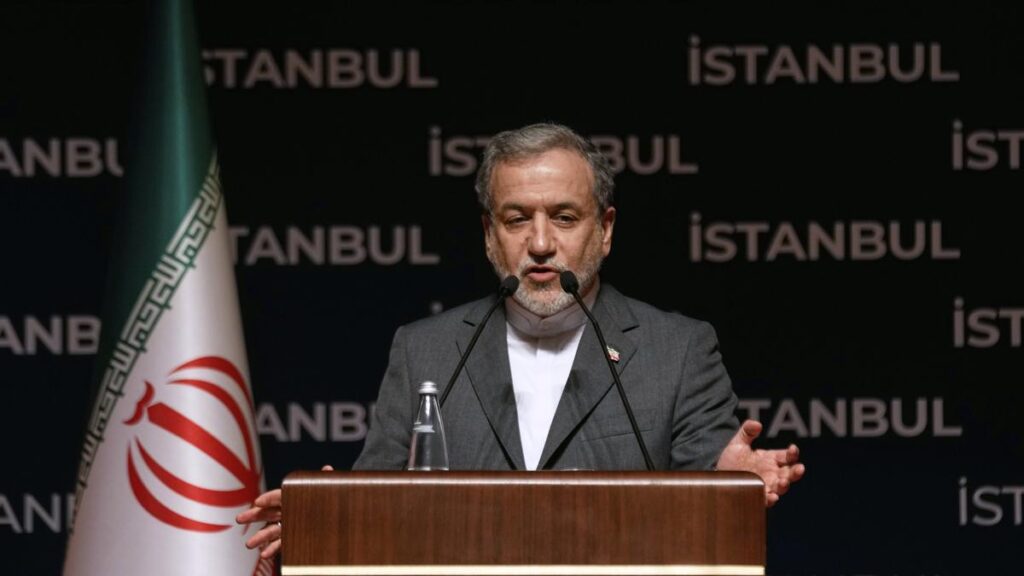
Iranian Nuclear
In a rapidly unfolding and tense geopolitical development, the United States has reportedly launched targeted strikes on Iranian nuclear facilities. The live updates coming out of the region suggest a major escalation in the already strained relations between Washington and Tehran. While the world watches the consequences of this bold military action, Iranian diplomat Abbas Araghchi has added another layer to the drama by confirming an imminent high-level meeting with Russian President Vladimir Putin on Monday.
Iran’s Foreign Minister Abbas Araghchi condemned the attacks. “The United States, a permanent member of the United Nations Security Council, has committed a grave violation of the UN Charter, international law and the NPT by attacking Iran’s peaceful nuclear installations. The events this morning are outrageous and will have everlasting consequences. Each and every member of the UN must be alarmed over this extremely dangerous, lawless and criminal behavior. In accordance with the UN Charter and its provisions allowing a legitimate response in self-defense, Iran reserves all options to defend its sovereignty, interest, and people,” he said in a post on X.
After the U.S. strikes, Iran launched a barrage of missiles on Israel, as confirmed by both sides. Israeli media reported several explosions over various parts of the country, including Tel Aviv. The Israeli military too said it launched fresh strikes on military targets, including missile launchers, in western Iran.
A Sudden Escalation
The reported U.S. military operation marks a significant and provocative move in Middle East geopolitics. The strikes, allegedly focused on disrupting Iran’s nuclear program, come amid growing concerns in the West about Tehran’s enriched uranium stockpiles and the possibility of weaponization.
Sources close to the Pentagon suggest that the strikes targeted facilities believed to be involved in uranium enrichment and advanced centrifuge production. Satellite imagery and local reports confirm explosions near Natanz and Fordow — key nuclear sites that have long been at the center of international scrutiny.
The U.S. administration has yet to release a detailed statement, but anonymous defense officials have described the operation as a “preemptive measure” aimed at curbing what they describe as “imminent threats” stemming from Iran’s nuclear advancements.
Iran’s Response
Iranian officials have condemned the strikes as an act of war and a blatant violation of international law. In an emergency press briefing, senior Iranian diplomat Abbas Araghchi strongly denounced the U.S. attack and warned of “serious consequences.”
“The Islamic Republic of Iran will not remain silent. Our right to defend our sovereignty and scientific progress is non-negotiable,” said Araghchi. “We consider this a red line that has been crossed.”
Diplomacy in Motion: Putin Meeting Confirmed
Amid the mounting tensions, Araghchi revealed that he will meet Russian President Vladimir Putin in Moscow on Monday. The purpose of the meeting is to discuss a unified diplomatic response to the U.S. strike and to strengthen the strategic partnership between Iran and Russia.
“President Putin has expressed grave concern about this development. We will coordinate closely to ensure a collective and balanced reaction,” Araghchi stated.
This announcement underscores Russia’s increasingly pivotal role in Middle Eastern affairs and its growing alignment with Iran on matters of security and defense. Moscow has long criticized U.S. interventions in the region and has openly supported Iran’s right to civilian nuclear development under the terms of the now-defunct Joint Comprehensive Plan of Action (JCPOA).
Global Reactions
The international community has responded with alarm. The United Nations has called for an emergency Security Council meeting to address the escalating conflict. UN Secretary-General António Guterres urged all parties to exercise maximum restraint.
European Union leaders have also weighed in, with the EU’s foreign policy chief calling for immediate de-escalation and a return to dialogue. “The risk of a broader conflict in the region has dramatically increased,” the statement warned.
China, another key player in the nuclear negotiations and a close ally of both Iran and Russia, has condemned the U.S. action as destabilizing and counterproductive.
A Fragile Peace Shattered
The attack comes at a time when diplomatic channels between Iran and the West had already been severely weakened. Following the U.S. withdrawal from the JCPOA in 2018 and the re-imposition of harsh economic sanctions on Iran, Tehran has been accelerating its nuclear activities in defiance of previous agreements.
Experts warn that this military escalation could set back any potential negotiations for years. “This is not just about centrifuges or uranium,” said Dr. Elena Moretti, a Middle East policy analyst. “This is a political signal. It tells us the age of strategic patience might be over.”
What Happens Next?
With a high-level Iran-Russia meeting scheduled and tensions mounting globally, all eyes are on how the next 72 hours will unfold. Will Iran retaliate directly? Will the U.S. justify its actions with new intelligence? Will Russia’s involvement deter further Western aggression?
For now, uncertainty reigns, and the world watches with bated breath.
As history has shown time and again, military confrontations in the Middle East rarely remain contained. The coming days may well define the trajectory of not only U.S.-Iran relations but also global stability at large.
Thanks For Reading